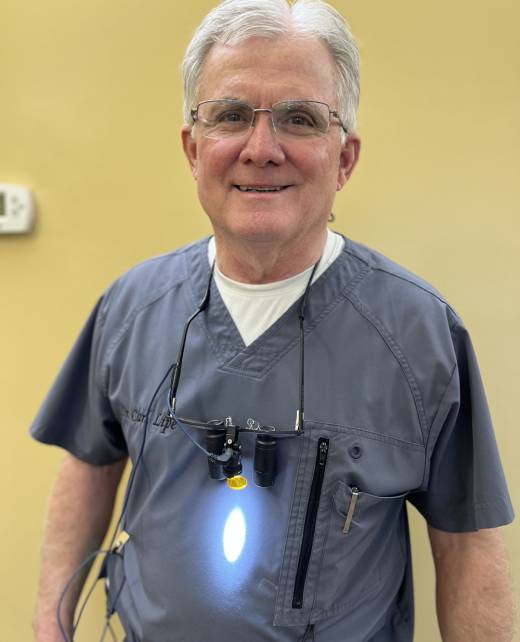Wisdom teeth, also known as the third molars, typically make their debut in our later life. Normally, these late bloomers emerge after all other teeth have settled into their positions. Often, they become a host of severe dental issues like dental misalignment, discomfort, and even the risk of infection.
Long ago, for ancient humans, these teeth used to serve a purpose, but now we no longer need them. However, they tend to stir up trouble for our oral well-being.
To safeguard oral health and prevent potential problems, dental professionals usually advise extracting wisdom teeth. As a result, it has become a fairly commonplace procedure. But a common question that has been encountered by professionals frequently is, how can one brush their teeth after wisdom teeth extraction?
Now, in this blog, we will delve into the important aspect of post-wisdom tooth extraction care. So, without further ado, let’s start.

Immediate aftermath of wisdom tooth extraction
The first and foremost thing is your mouth needs time to heal after your wisdom teeth extraction. As the extraction site is an open wound, it deserves to be taken care of seriously to avoid any threats of infection or dry socket. In this painful condition, a blood clot forms in the socket and is dislodged or dissolved before the wound heals.
First 24 hours
While it might seem contrary, do not brush your teeth for the day you first experience wisdom teeth extraction. The initial 24 hours of healing are essential for the recovery process. It’s also not recommended to wash your mouth with mouthwash during this period. It can cause the wound to bleed and could result in a dry socket. If you’re thinking about when you should brush your teeth following wisdom tooth removal, The answer is a day later! Therefore, be patient and wait for 24 hours before grabbing your toothbrush.
Post wisdom tooth extraction Brushing guidelines
Follow the advice of your dentist about when you should begin to brush after wisdom tooth extraction. Most of the time they will tell you to start your brushing a day later.
In the initial two or so weeks following the procedure, you might require extra caution when brushing. Here’s the information you should know about brushing your teeth following wisdom teeth extraction.
- Be cautious around the area of extraction. Be sure to use a gentle brush.
- Pick a toothbrush with a soft bristle.
- Don’t hurry, and take your time to scrub thoroughly and carefully.
- After drinking or eating, mix warm water with salt together and then swirl it into your mouth.
- Make sure to use gentle (not aggressive) swirling when you rinse your mouth.
- Try a gentler toothpaste to prevent irritation.
If you’ve recently had your wisdom teeth removed, replace your toothbrush or head before brushing your teeth. As time passes, toothbrushes collect bacteria, which can be particularly harmful to your mouth following surgery. It is not advisable to introduce any bacteria into the area during the initial phase of healing.
When to Consult Your Dentist?

You may experience minor bleeding and discomfort soon after the wisdom tooth extraction. There are certain signs that warrant you to call your dentist.
If you experience severe pain, heavy bleeding, pus discharge, and fever, contact your dentist immediately. These could be signs of complications that need professional attention.
Severe Pain – If you experience intense or worsening pain that cannot be managed with prescribed painkillers, it may indicate an underlying issue that needs professional evaluation.
Heavy Bleeding – Persistent or excessive bleeding that doesn’t reduce after applying pressure for 30 minutes is a cause for concern and requires immediate dental attention.
Pus Discharge – Any discharge of pus from the extraction site is a sign of infection. Pus is typically yellow or green and may have an unpleasant odor. Infections need prompt treatment to prevent further complications.
Fever – A fever is a common sign of infection. If you develop a fever following your wisdom tooth extraction, it could mean that the extraction site is infected and needs to be addressed by your dentist.
Swelling That Worsens – While some swelling is normal, it should start to subside after the first few days. If the swelling worsens or is accompanied by severe pain, it could indicate an infection or other complication.
Difficulty Swallowing or Breathing – Any signs of difficulty swallowing or breathing should be treated as an emergency. This could indicate a serious infection that has spread and is causing airway obstruction.
Unpleasant Taste or Smell – An ongoing unpleasant taste or smell in your mouth can also signal an infection. It’s important to get this checked to avoid the spread of infection.
Final Thoughts
In conclusion, after wisdom tooth extraction, it’s crucial to maintain proper oral hygiene. Brushing post-surgery will promote healing and overall oral well-being.
If you’re considering wisdom tooth removal, reach out to Carl F. Lipe’s Denver team immediately. We will assess your oral health to help determine whether tooth extracting is your best choice.
Reserve a consultation for wisdom tooth extraction today at Carl F. Lipe in Denver! Also follow us on facebook and instagram from latest dental health tips! Your smile deserves only the best care.
